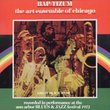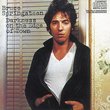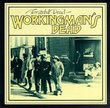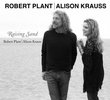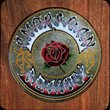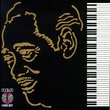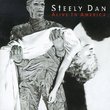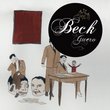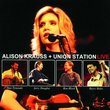| All Artists: John Lee Hooker Title: John Lee Hooker: The Ultimate Collection 1948-1990 Members Wishing: 3 Total Copies: 0 Label: Rhino / Wea Original Release Date: 11/19/1991 Release Date: 11/19/1991 Genres: Country, Blues, Pop Styles: Classic Country, Contemporary Blues, Delta Blues, Traditional Blues, Regional Blues, Detroit Blues, Electric Blues, Acoustic Blues, Modern Blues Number of Discs: 2 SwapaCD Credits: 2 UPCs: 081227057220, 081227057244 |
Search - John Lee Hooker :: John Lee Hooker: The Ultimate Collection 1948-1990
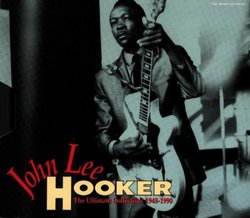 | John Lee Hooker John Lee Hooker: The Ultimate Collection 1948-1990 Genres: Country, Blues, Pop
This 2 CD set represents the best introduction to Hooker's trademark sound: one- and two-chord vamps delivered with a hypnotic, perpetual boogie rhythm and accented by reverberating staccato runs and intense foot-stomping.... more » |
Larger Image |
CD DetailsSynopsis
Amazon.com This 2 CD set represents the best introduction to Hooker's trademark sound: one- and two-chord vamps delivered with a hypnotic, perpetual boogie rhythm and accented by reverberating staccato runs and intense foot-stomping. With his deep, rich voice, Hooker electrified the blues of the Delta, bringing the stark, brooding sound to the city and influencing scores of rock musicians. Most of his highlights are here: from early Modern classics "Boogie Chillen," "Crawlin' King Snake," and "House Rent Boogie"; to Vee-Jay singles "Boom Boom" and "Dimples"; to 1966 Chess work with Chicagoans Lafayette Leake and Willie Dixon; to 1971 collaborations with rockers Canned Heat; to performances with modern blues stars Roy Rogers and Bonnie Raitt. --Marc Greilsamer Similar CDs
Similarly Requested CDs
|
CD ReviewsThe creative innovative artistry of John Lee Hooker Tony Thomas | SUNNY ISLES BEACH, FL USA | 11/02/2004 (5 out of 5 stars) "I've been listening to Hooker for about 45 years. I can't say that there is a single Hooker side I have ever heard, at least until some of the last sides where other artists pitched in with him to do some CDs to help raise money to get him through his final illness, any single track by Hooker that I didn't think every single blues lover should have. Get this, and then get everything else Hooker did, whatever you can afford! These recordings start with some of the initial hits that Hooker had when he first began to record blues and his great combination of electric guitar and basic modal blues won him great popularity. The originals like Boogie Chille and King Snake, followed by a bunch of remakes of hot R & B tunes like One Scotch One Bourbon one beer. There seems to be a lot of later material here, where Hooker remakes not the R & B hits that are contemporary to him, but a number of "delta blues" tunes that became standards among blues performers playing for "folk" artists starting in the late 1960s. Hooker is good all the time. Myself, I prefer the stuff from the 1940s and the early 1950s which were R & B oriented blues. His covers of songs made famous by Amos Milburn, Winnonie Harris, and even Charles Brown were great music and an important dialogue about the blues. I also prefer the two covers of non-Blues material, Jazz and pop standards here: "I cover the waterfront" and "Frisco Blues" which is really based on Tony Bennett's "I left my Heart in San Fransisco." There are really important statements about how the blues dialogues with the the tin pan alley method of song writing. They also speak to Hooker's power as a poet and a musican. Like too many blues artists, Hooker tends to be reduced to a primitivist stereotype. Rather than being a creative artist whose depth of spirit, intellect, music and poetry create a new power and product with his music, he is misinterpreted as some kind of relict of an older or truer blues tradition. Rather than a real artist, he is dehumanized as the real thing! Nothing could be further from the truth. Nothing could minimize his artistry more. Hooker's music falls into the generation of the R & B bluesmen of the late 1940s who brought the stream of music from the Delta--Johnny Lee being from Clarksdale--to the North, Muddy Waters to Chicago, Johnny Lee to Detroit. Johnny's music, particularly his music from the late 1940s and 1950s when he was popular not among white ex folkies or whites who think they love the blues, but in the Black community, is impossible to understand outside of the context of postwar R & B, not the initial delta blues. The dance rhythm that proceeds from Boogie Chillun, King Snake, Boom Boom Boom, wouldn't have worked in a 1920s Juke Joint. It belongs someplace like Henry's Swing Club where a rockin' rhythm is coming from the attempt to combine the power of swing with the rock of the blues that created R & B in the 1940s. Hooker was a highly sophisticated musician who developed his own off-shoot from the traditional trajectory of blues artists. Starting with the great female blues stars and Blind Lemon Jefferson, the direction of blues has been to harmonize the essential modal African-based musics of the blues. Hooker took the music in an entirely different method, by returning to the modal base of the music. To do so he essentially goes away from the tendency of blues musicians to develop the music into a band music. He solves the problem of filling the sound that had become expected without the harmonizing basis for different instruments to work together in a band by technological innovation, not tradition. He was the first bluesman to take full advantage of the ability of electric guitars and amplifiers to do more than make the sound of a guitar louder. He used the settings on guitar, amplified, and recording studio to create a new and different sound, and used the amplification to fill the spaces in the music others would need bands to fill. This decision was really in the vanguard of the electric guitar revolution in blues, rock, country, and all popular music that exploded in the 1950s and has yet to end. Hooker with accompanying musicians and bands. Some of the best sides came when he was recorded not with other blues players but with some of the top Jazz players in the late 1950s. His modal music, excellent timing, free form improvisation and general cool made his records sell not only among blues players but Jazz lovers back in the day. This speaks to how advanced his rhythmic sense really was. There was also a confluence between Hooker and some of the most advanced Jazz players of the late 1950s and 1960s who sought similar modal solutions to the problems of jazz improvisation. Get this, and then get everything else Hooker Did. My favorites are the recordings he did in the 1960s for Vee-Jay a Black owned record company that produced him as a quality artist with great soundwork and free selection of his material. Hooker is really an electric artist, so some of the sides cut during the 1960's "folk revival" where he's made to play an acoustic are kind of an insult to his artistry and history, though like everything Hooker did,they were great music. Again, you can't go wrong with this or anything else by Johnnie Lee." Rhino Captures the Hooker. Tom | Palatine, IL USA | 01/16/2001 (5 out of 5 stars) "This is such a nice set.Almost a primer for the new fan, and a refresher course for seasoned vetrans...John Lee is well portrayed on these very nicely remastered cuts.Disc 1 starts with his solo accoustic stuff..."Teachin' the Blues" is a classic blues gem, and this is a great cut of it.Disc 2 features gritty, rocking cuts of legendary blues tracks including Hooker staples like "Boom Boom," and "One Bourbon, One Scotch, and one Beer."If you think you like Hooker, this is your starter kit.If you love him, this little portable collection completes the set.There is also a 2CD set from Tomato Records that closely mirrors the titles on the Rhino collection but uses different cuts. It is grittier, and poorly produced, but makes a wonderful companion peice to the Rhino set.Boogie, Chillun." As Close as It Gets! chris meesey Food Czar | The Colony, TX United States | 09/15/2003 (4 out of 5 stars) "Let's get one thing straight: as of today 09/15/03, there is no "ultimate" John Lee Hooker collection. But with 31 of his best tracks, this Rhino mini-box comes the closest to Hooker nirvana. (There is a 10-CD set, Epitath, but since it would take a week to listen to it once, I'll pass.) The problem with compiling such a collection is implied in Boogie Man, Charles Shaar Murray's fine biography. Hooker recorded for a number of different labels, especially in his early days, and also under a variety of different names (John Lee Booker, John Lee Cooker, Little Pork Chop, etc.), so it takes a lot of legwork to figure out just which recordings were made by Hooker at all, much less obtain the rights to rerelease them. (Murray spends almost half the book on such detective work.) Therefore, such classic gems as "The Flood" and "Whiskey and Wimmen" are not included in this set. Still, it's a very good attempt. Rhino has chosen to start the collection with the track "Teachin' the Blues," which is an aural primer on how he created his unique sound. Thus educated, the listener can then move on to such primal tunes as "Boogie Chillun" (A live staple for virtually every major blues band from Canned Heat to Savoy Brown, this was the number Hooker chose to perform in a guest spot on the Rolling Stones Steel Wheels tour in the eighties.), "Crawling King Snake" (covered wonderfully by the Doors), "Boom, Boom" (the Animals), and his reinterpretation of an Amos Milburn song, here entitled "One Bourbon, One Scotch, One Beer (which, when combined with John L's House Rent Boogie, was very well covered by George Thorogood). He recorded several such reinterpretations, most notably "Frisco Blues" (In this case, he reportedly didn't try to get the correct lyrics to Tony Bennett's famed "I Left My Heart in San Francisco;" he just sat down and recorded his own off-the-cuff rendition.). In conclusion, there is plenty of John Lee Hooker's best stuff here to warrant a recommendation; it's just not as "ultimate" as his most devoted fans would want it to be."
|

 Track Listings (16) - Disc #1
Track Listings (16) - Disc #1